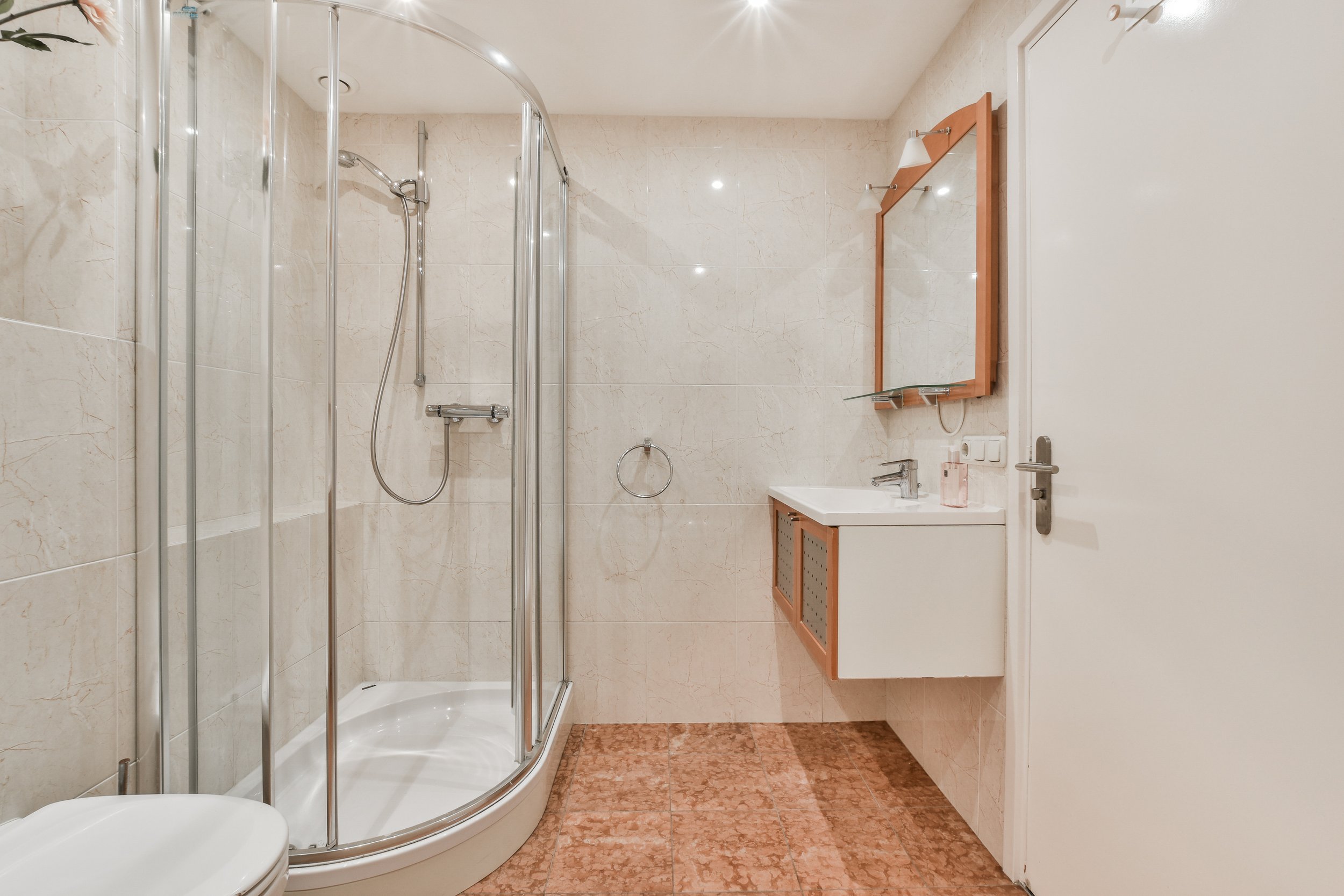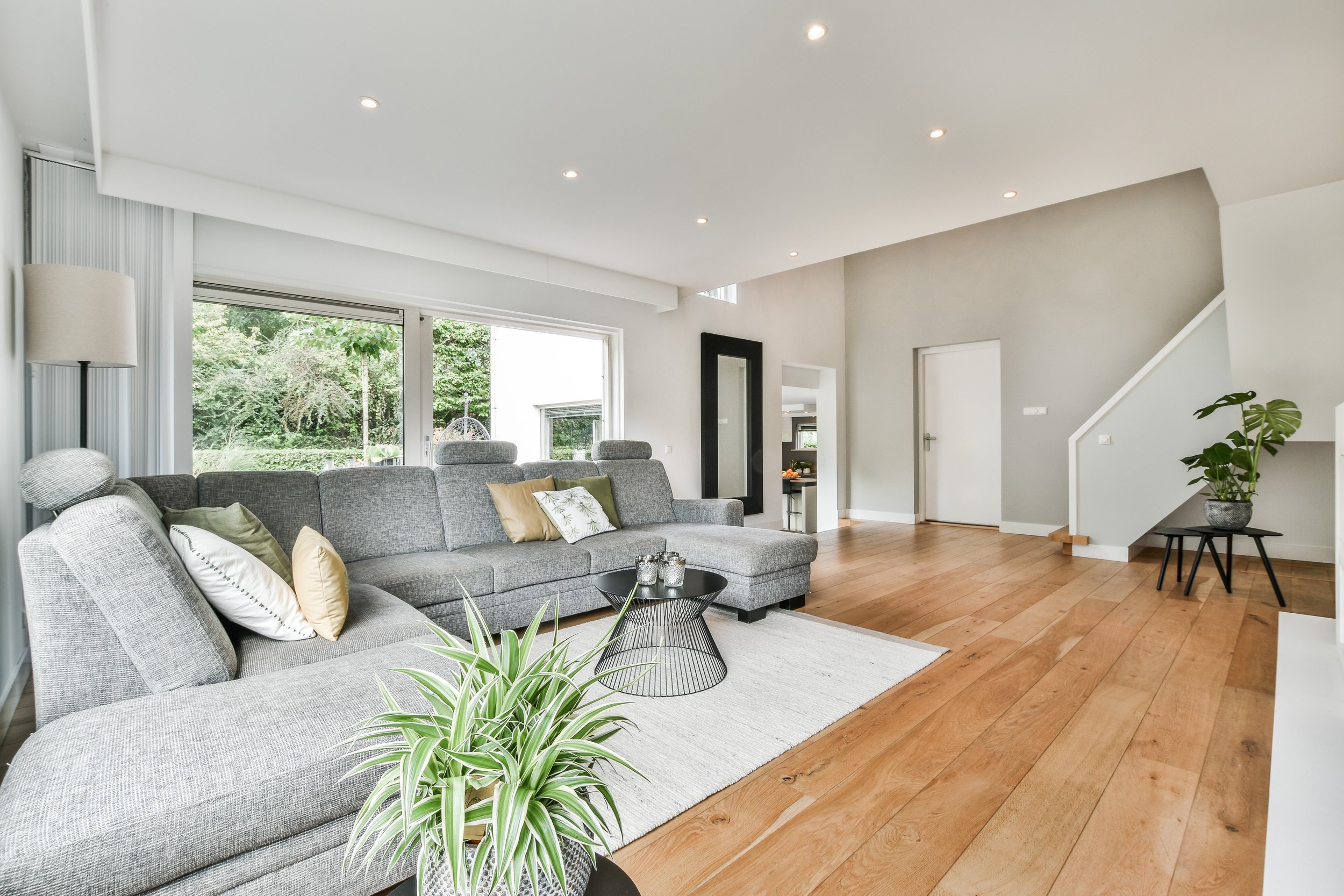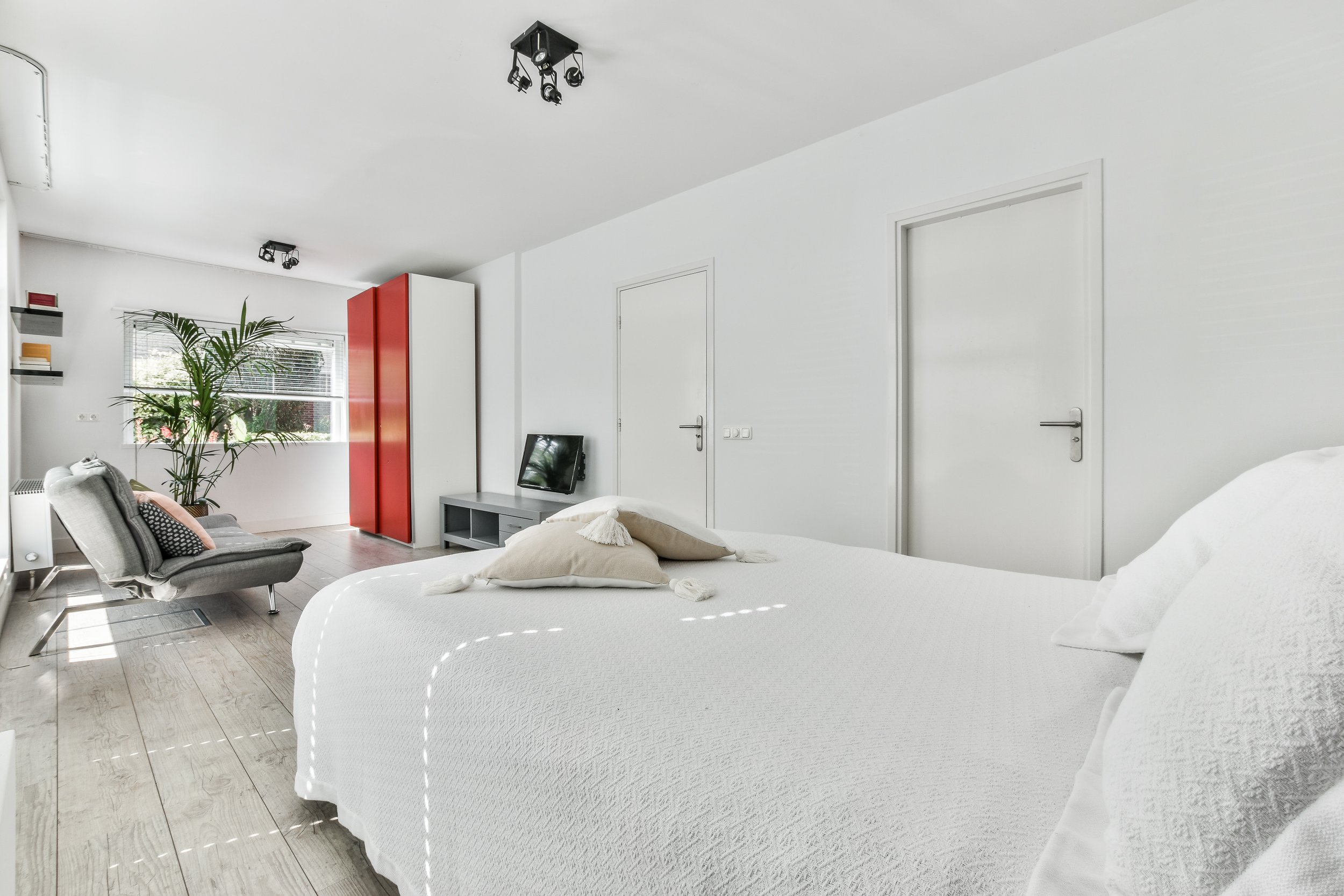
How to Design a Multi-Use Basement in Roswell, GA
A finished basement can work harder than any other space in the house. In Roswell, the most useful layouts blend a family zone, a guest suite, storage that actually works, and a quiet corner for work or workouts. The right plan respects local soil conditions, fluctuating humidity, and the way families across East Cobb, Roswell, and North Fulton actually live. Here is a practical way to build a basement that earns its keep year-round and adds resale value.
Start with the bones: moisture, code, and headroom
Every smart design begins with the envelope. Roswell clay holds moisture, and summer humidity strains unfinished basements. Before sketching rooms, confirm water control. A continuous interior drain with a sump, sealed penetrations, and a dehumidifier rated for at least 70 pints per day keeps relative humidity near 50 percent. If the basement smells musty in June, address that first or the space will never feel comfortable.
Check ceiling heights and duct runs. Georgia code requires 7 feet of clear height in habitable rooms. Many older Roswell homes show 6 feet 10 inches under a trunk line. A design that relocates or converts to slimline ducts may gain the inches needed for a legal bedroom or a golf-swing zone without a soffit maze.
Egress is not negotiable. A legal bedroom needs an egress window or door that meets size and ladder requirements. In Roswell ranch homes with half-buried foundations, a stepped areaway or a full-height window well is often the cleanest solution and pays off at appraisal.
Map zones that flex with real life
A basement works best as a set of zones with clear edges and shared utilities. In a typical Roswell footprint between 800 and 1,200 square feet, four zones cover most needs: media, guest, work or fitness, and storage. The plan should let two zones run at once without conflict: kids watching a movie while someone uses the office, or guests sleeping while laundry runs.
Media spaces prefer interior walls with no windows to control glare. Offices need a window for morale and a door for calls. Guest suites belong near plumbing. Storage tucks into the shortest headroom under the stairs or behind the mechanicals, separated by a gasketed door to cut noise.
A recent project off Hembree Road used a 28 by 14 foot media and game area along the back wall, a 12 by 12 foot office with a pocket door at the walkout, a 10 by 12 foot guest room with an egress window, and a 6 by 9 foot bath sharing a wall with the existing stack. The plan kept circulation simple and cut plumbing costs by about 20 percent compared to a split bath layout.
Control sound early, not after the echo
Basements reflect sound. Hard floors over concrete and blank drywall turn movie night into a loud box. Construction choices fix this without gimmicks. Use mineral wool in ceiling joists, a single layer of 5/8 inch drywall, and resilient channel over the media area. Add solid-core doors around the office and guest suite. Carpet tiles with cushion in high-traffic zones help both sound and comfort. In a 20 by 16 foot room, four 2 by 4 foot fabric acoustic panels on the primary reflection points usually tame slap echo.

Plan mechanicals and wiring for multi-use
Comfort depends on even temperatures and quiet systems. If a dedicated basement HVAC zone is feasible, a small heat pump or ducted mini split gives better control than tying into the main system. Where that is not feasible, supply more registers at the perimeter and returns near the center. Basements in Roswell can run cool in winter; set supply air around 95 to 100 degrees and include a smart thermostat with remote sensor.
Electrical service should reflect actual loads: two 20-amp circuits for the media stack and outlets, a 20-amp dedicated for the home gym if using a treadmill, and GFCI protection for bath and bar. Prewire for 5.1 or 7.1 audio with in-wall rated cable. Add Ethernet to the office and media wall; concrete and ductwork block Wi-Fi more than people expect.
Surfaces that stand up to Georgia humidity
Finishes need to handle moisture swings without warping. On the floor, use luxury vinyl plank with a vapor barrier underlayment or stained concrete with area rugs. If carpet is preferred for warmth, choose carpet tiles with moisture-resistant backing; a single wet spill does not ruin the whole room.
On walls, avoid batt insulation against concrete. Use a continuous rigid foam or closed-cell spray foam against the foundation, then frame and drywall. Mold-resistant drywall in bath areas makes sense. Paint with washable eggshell in living zones and a high-quality bathroom paint in the guest bath.
For a wet bar, pick quartz or a sealed porcelain slab. Avoid particleboard cores near sinks. A bar sink and under-counter fridge fit in 6 linear feet. If a full kitchen would complicate permitting, a kitchenette with microwave drawer keeps the function without crossing that line.
Lighting that matches each zone
A basement needs layers of light to shift from movie night to homework to guests. Recessed LEDs handle general lighting at 3000K for a warm, natural feel. Use dimmers in the media Heide Contracting: basement finishing services in Atlanta, GA. and guest areas. Add two or three wall sconces to soften light for evening. Task lighting at the bar, a desk lamp in the office, and a mirror light in the bath complete the set.
Georgia clay soils reflect less daylight into wells than sandy soils. If adding windows, mark sun angles. A large casement on the south or west side brightens an office. In walkout basements along the Chattahoochee, a full-lite exterior door brings in more light than two small windows.
Storage that does not take over
Storage keeps the basement orderly only if it is easy. Floor-to-ceiling cabinets along one wall of the media room hide board games and blankets. A 30 inch deep closet behind the office holds seasonal bins. Under-stair drawers make use of the awkward wedge. Keep storage away from exterior walls where moisture can creep into cardboard; use plastic bins with gaskets and wire shelving to allow air flow.
Bathrooms and guest comfort
A guest suite earns its place if it feels private. A pocket door saves swing space. A 36 inch shower with a frameless door fits most layouts. Consider a quiet bath fan rated near 1.0 sones. Keep the water heater access outside of the guest zone to avoid service disruptions.
If slab plumbing is a constraint, a rear-discharge toilet or upflush system can place a half bath where gravity drain lines do not reach. This approach saves concrete cutting but adds pump maintenance down the road. In most Roswell basements with accessible stacks, a standard gravity bath remains the better long-term choice.
Safe stairs and smart entries
Basement stairs often feel narrow. Good lighting and solid handrails matter more than people think. A landing with a drop zone at the bottom keeps clutter off steps. If the basement opens to the backyard, use a durable tile or sealed concrete at the entry to catch red clay on shoes. A small bench and hooks help the space function like a second mudroom during sports seasons.
Budgets, timelines, and what affects both
For a multi-use basement in Roswell, recent projects range from $65 to $110 per finished square foot, depending on bath count, egress work, and mechanical changes. Sound control and built-ins add cost but bring daily value. A straightforward 900 square foot finish with one bath and a bar often lands between $70,000 and $95,000. Add two egress windows and a full kitchenette, and the range can reach $120,000 to $145,000.
Timelines run 8 to 14 weeks once permits clear. Lead times for custom windows and electrical panels can add a week or two. Homeowners who preselect finishes before framing begins reduce idle time and change orders.


Ideas that work well in Roswell homes
- A split media and play space with a low wall or double-sided bookshelves that define areas without closing them off.
- An office with a sliding glass panel wall that keeps sound down but lets daylight through.
- A gym with rubber tile flooring, mirrored wall panels, and blocking for a wall-mounted rack or cable station.
- A bunk room with twin-over-queen built-ins for visiting family, paired with a small closet and blackout shades.
- A hobby nook behind the stairs with a 6 foot counter, pegboard, and task lighting for crafts or model work.
How Heide Contracting approaches multi-use basements
Heide Contracting builds basements across Roswell, Alpharetta, Sandy Springs, and greater Atlanta with clear plans and local trades who know our soils and codes. The team starts with a moisture and structure check, then sketches two to three test-fit layouts that show different zone balances. Clients pick the layout that fits how they live, and the crew prices real materials, not allowances that shift later.
Site protection is standard. Stairs and main-floor paths get floor protection, and dust control goes up before any demolition. Weekly check-ins keep homeowners aligned with schedule and selections. Projects close with a punch-list walk and a humidity baseline reading so the space starts healthy.
For homeowners comparing options, search terms such as basement finishing services in Atlanta, GA can surface a mix of firms. The right partner will talk about egress, sound, and moisture in the first meeting, and will show photos of Roswell basements with similar footprints to yours.
Zoning rules of thumb for a clean floor plan
A good plan respects circulation. Keep a 36 inch walkway from stairs to the farthest door. Group noisy zones away from bedrooms above if possible. Align storage along the shortest headroom, and reserve the best daylight for office or gym. Use glass doors and half walls to share light while keeping zones distinct.
Ready to turn your lower level into real living space?
Heide Contracting helps Roswell homeowners design and build multi-use basements that feel like part of the home, not an afterthought. The team handles moisture control, egress, permits, and finish work under one roof. Share the square footage, ceiling heights, and a quick wish list, and receive a clear plan with honest numbers.
Schedule a consultation for your Roswell project today. Heide Contracting serves Roswell, East Cobb, Alpharetta, and the broader metro and offers full basement finishing services in Atlanta, GA for those outside the immediate area.
Heide Contracting provides renovation and structural construction services in Atlanta, GA. Our team specializes in load-bearing wall removal, crawlspace conversions, and basement excavations that expand and improve living areas. We handle foundation wall repairs, masonry, porch and deck fixes, and structural upgrades with a focus on safety and design. Whether you want to open your floor plan, repair structural damage, or convert unused space, we deliver reliable solutions with clear planning and skilled work. Heide Contracting
Atlanta,
GA,
USA
Phone: (470) 469-5627 Website:
https://www.heidecontracting.com,
Basement Conversions
Instagram: @heidecontracting
Facebook: Heide Contracting